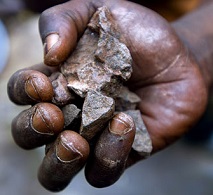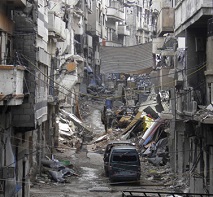
Dammed Rivers Create Hardship for Brazil’s Native Peoples
(IPS) – The Itaparica hydroelectric power plant occupied land belonging to the Pankararu indigenous people, but while others were compensated, they were not. They have lost land and access to the São Francisco river, charge native leaders in Paulo Afonso, a city in northeastern Brazil.
“We can no longer eat fish, but the worst loss was that of the sacred waterfall where we celebrated religious rites,” chief José Auto dos Santos told IPS.
Nearly 200 kilometres downriver, the Xokó indigenous community suffers from low water flow, the result of the large dams that have eliminated the regular seasonal rises in river level of the São Francisco, making it impossible to cultívate rice in the floodplains as before and drastically reducing the fish catch.



